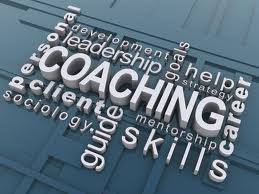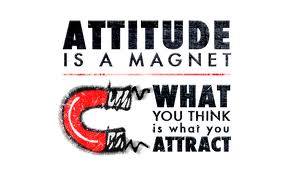Coaches understand if they want to win they can't focus on the score. Instead they have to identify the causes that produce the score they want and get busy coaching and managing those causes.
and managing those causes.
 and managing those causes.
and managing those causes.
Are you running a sales organization or managing salespeople? Are you an executive who needs to improve your company's sales results? It's fairly simple, even easy, to identify the sales you want or need to produce. However, sales are a result, and results can't be managed anymore than the score can be managed. When you wait until the results are in, it's too late. Increasing sales requires identifying the causes that produce sales and begin coaching and managing those causes.
The first thing to acknowledge is that salespeople are performing artists. Just like athletes, actors and musicians they need direction, leadership and coaching to produce their results. Once you acknowledge this, you can begin to understand the importance and priority coaching plays in your organizations sales success. In fact, you'll start to understand what's missing in most sales organizations. THE SALES COACH!
Here are some key areas and specifics you can get started implementing if you're going to stop being a frustrated traditional sales manager and become a successful sales coach.
Performance Culture
Instilling an attitude that sales is a performance art will be a key to your success. Building a team of passionate salespeople who care about customers and helping people while being an advocate for the profession of sales will require the full force of your will. Turning mediocrity into excellence always does. You'll need a firm belief that you are working to leave a legacy, not just working to produce sales numbers. The focus on making customers, instead of sales, can help make this possible by creating a higher purpose in your sales philosophy. I used to advise my clients to only hire people with a passion to be their best and an exceptional work ethic. This doesn't work any longer because you won't find enough people with these traits because we've experienced too much of a deterioration in what's considered average. Our standards have eroded. You'll need to be prepared to inspire and develop salespeople to learn grow and become peak performers.
Instilling an attitude that sales is a performance art will be a key to your success. Building a team of passionate salespeople who care about customers and helping people while being an advocate for the profession of sales will require the full force of your will. Turning mediocrity into excellence always does. You'll need a firm belief that you are working to leave a legacy, not just working to produce sales numbers. The focus on making customers, instead of sales, can help make this possible by creating a higher purpose in your sales philosophy. I used to advise my clients to only hire people with a passion to be their best and an exceptional work ethic. This doesn't work any longer because you won't find enough people with these traits because we've experienced too much of a deterioration in what's considered average. Our standards have eroded. You'll need to be prepared to inspire and develop salespeople to learn grow and become peak performers.
Recruiting
Do you know your next salesperson? Do you have a bench, feeder system or know where to look for your next salesperson? A sales coach's first action should be to recruit salespeople. This has three distinct purposes. First, performers should know if they don't perform they can be replaced. This will help instill a performance culture in your sales team. Second, you need to find the people you believe you can coach, teach and train. Third, you want to hire differently than your competition to increase your chances of coaching a winning sales organization loaded with top talent.
Do you know your next salesperson? Do you have a bench, feeder system or know where to look for your next salesperson? A sales coach's first action should be to recruit salespeople. This has three distinct purposes. First, performers should know if they don't perform they can be replaced. This will help instill a performance culture in your sales team. Second, you need to find the people you believe you can coach, teach and train. Third, you want to hire differently than your competition to increase your chances of coaching a winning sales organization loaded with top talent.
 Coaching...Attitudes
Coaching...AttitudesAttitudes produce actions that generate results. Attitudes are dominant thoughts and beliefs that make up a person's state-of-mind. Salespeople need a superior state-of-mind to improve their ability to perform at their peak consistently. Sales Coaches manage attitudes that creates the atmosphere or culture of their sales team. This requires personal contact daily with your salespeople to check their attitude. This will give you the time to support the people with positive attitudes, coach up the one's who need it and make sure they are prepared to perform to their peak.
Teaching/Training...Skills and Knowledge
Sales Coaches are always teaching. They teach to improve the skills and knowledge of their salespeople. They train salespeople by holding them accountable to learn and improve. Training is what your salespeople do and it's a Sales Coaches responsibility to insure their salespeople train to stay in sales shape. Being a teacher and trainer is an ongoing part of being a Sales Coach. So, Sales Coaches have to study, learn and grow constantly if they are going lead their team to success. Regularly scheduled sales education are a coaches responsibility. Creating a culture where change, learning and growth are a habit of all salespeople is the real requirement for sustained success.
Sales Coaches are always teaching. They teach to improve the skills and knowledge of their salespeople. They train salespeople by holding them accountable to learn and improve. Training is what your salespeople do and it's a Sales Coaches responsibility to insure their salespeople train to stay in sales shape. Being a teacher and trainer is an ongoing part of being a Sales Coach. So, Sales Coaches have to study, learn and grow constantly if they are going lead their team to success. Regularly scheduled sales education are a coaches responsibility. Creating a culture where change, learning and growth are a habit of all salespeople is the real requirement for sustained success.
Managing...Actions
Managing actions is the exercise of assigning and monitoring the work of your salespeople. The salespeople who don't want to improve won't like being held accountable and they'll often call this micro-management. It's not micro-management, it's responsible Sales Coaching. There are two distinct purposes for monitoring work. The first is accountability. The second, and most important, is to create real life opportunities to coach attitudes, teach skills and knowledge while assigning actions to be taken that you can monitor and do this all again. This is the circle of coaching, teaching, training and managing to coach teach and train that will produce the improved results you desire.
Managing actions is the exercise of assigning and monitoring the work of your salespeople. The salespeople who don't want to improve won't like being held accountable and they'll often call this micro-management. It's not micro-management, it's responsible Sales Coaching. There are two distinct purposes for monitoring work. The first is accountability. The second, and most important, is to create real life opportunities to coach attitudes, teach skills and knowledge while assigning actions to be taken that you can monitor and do this all again. This is the circle of coaching, teaching, training and managing to coach teach and train that will produce the improved results you desire.
These are the actions of successful coaches first taught to me by my father Charles Moore, a successful football coach, added to and reinforced by John Wooden in one-on-one sessions with me. They have been implemented, developed and constantly proven in real life environments during my career for over 38 years. In addition, I have been successfully coaching, teaching and training sales managers and executives using these for over 20 years. They are the skills that successful sales coaches master and practice daily. Peak performing sales management and coaching are often the missing link in a companies sales organization. Get started Coaching today and don't let that be the case in your company.
By Mike Moore


